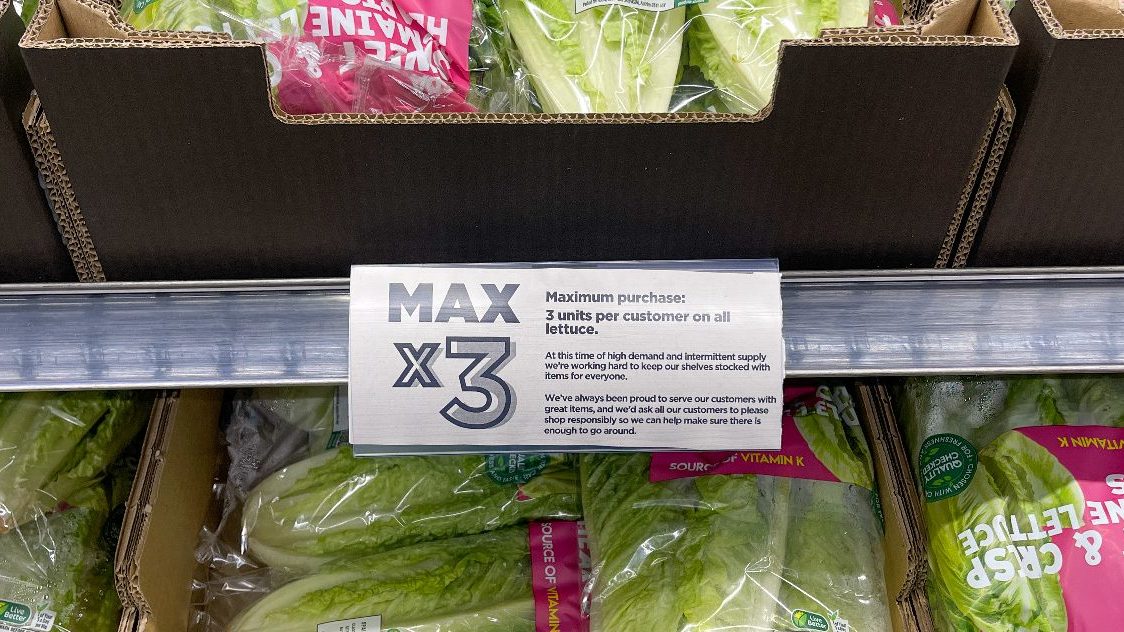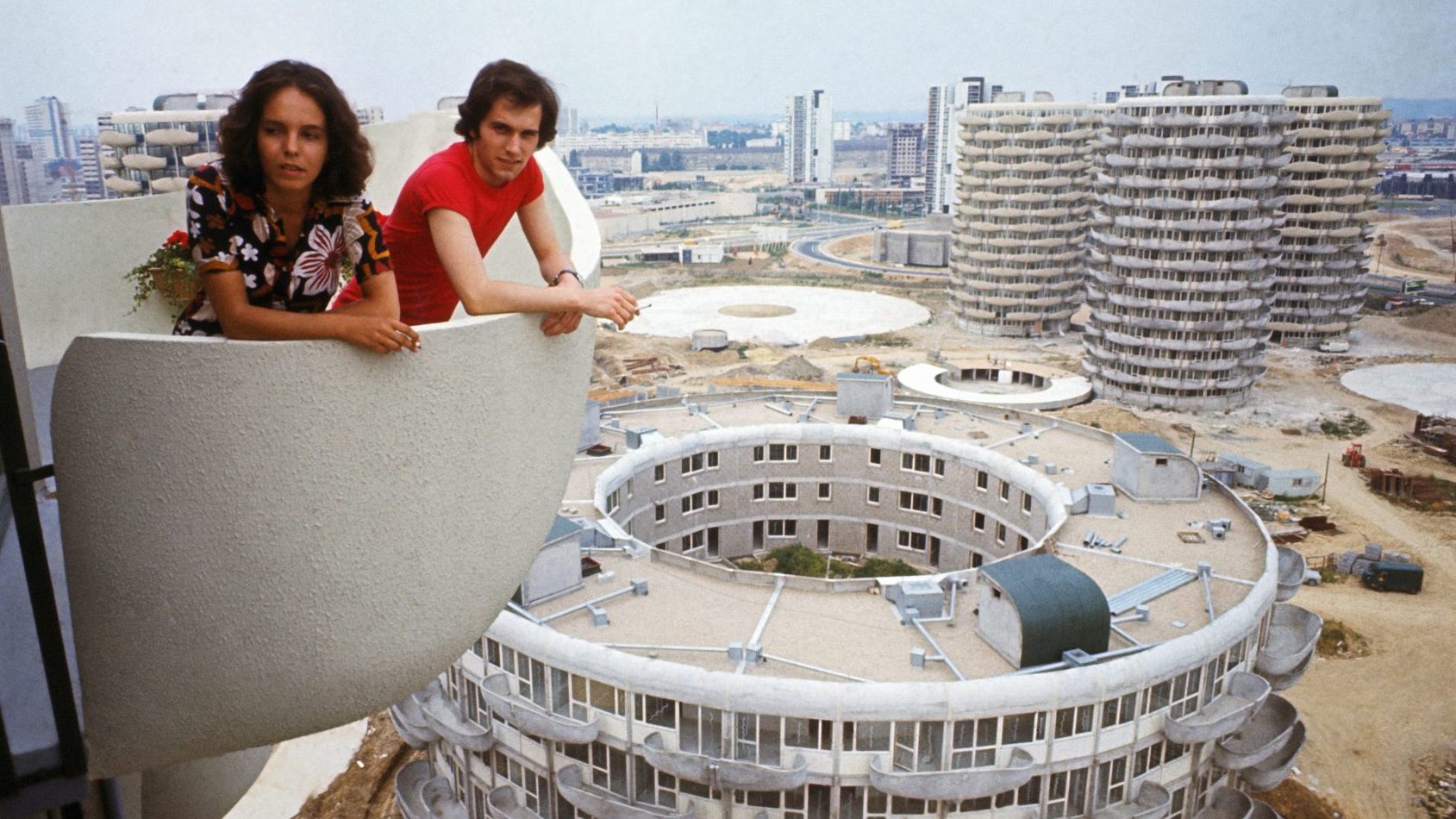Implicit in Jonty Bloom’s article on Brexit food shortages (“You ain’t seen nothing yet”, TNE #331) is the idea that rationing is inherently a bad thing. It is not. That is just as well, as it is coming, whether we like it or not.
We have a very simple choice. Either we implement rationing of meat, air miles, energy usage, water and the like, sooner, as part of a managed and accelerated reduction of carbon emissions, or later, as an emergency response to our failure to do the former.
In the second world war rations and coupons were not transferable; properly so. Yet tradable rations for such things as aeroplane flights, meat-eating and even pet ownership could be a powerful means of wealth redistribution.
Rationing should not automatically be seen as a bad consequence of short-term failure. It could (will?) be a vital survival tool with many social benefits.
Peter Haydon
London SE24
The serious food shortages predicted in “You ain’t seen nothing yet” couldn’t just be bullshitted away as nothing to do with Brexit. A proper solution such as giving us access to the free markets of Europe would become difficult to avoid.
“We have to show we do things differently,” Johnson said recently. Does that include widespread shortages?
Michael Robinson
Via Facebook
Like many commentators, Jonty Bloom describes Brexit bureaucracy affecting British exporters and importers as red tape. Surely the hue is Tory blue?
Peter Stibbard
Tonbridge, Kent
You could see these shortages coming a mile off, and this is just the start. The government’s policy is to rely even more on cheap foreign imports, reducing the amount of food that UK farmers can produce by using net zero as an excuse. Ironically, net zero is exactly the amount of homegrown produce our supermarkets will stock in five years’ time.
James Foggin
Via Facebook
Even Johnson and Truss weren’t mad enough to actually bring in the checks that Jonty Bloom describes. Since they would undoubtedly cause severe shortages, a sensible government will postpone them.
The question is, will Johnson and the ERG nut jobs let Sunak kick the can down the road, or will they insist he brings in the changes in the name of “real Brexit”, watch them create havoc and then use them to engineer his removal?
Ian Anderson
Via Facebook
Market gains
A small part of our country seems set to continue enjoying EU single market benefits (“Brussels and the turnips”, TNE #331). Why not the rest of us, in Cornwall or Cumbria, Devon or Durham? Indeed everyone everywhere all at once?
David Rogers
Tavistock, Devon
The last quote in Jennifer Baker’s “Brussels and the turnips” is telling – “no one in Brussels cares any more” – and although the latest rapprochement is to be welcomed with the Windsor Framework, will it go the same way as all the other short-term fixes, and will the dire Northern Ireland Protocol bill live to fight another Commons day?
Rishi Sunak has recalibrated a more consensual relationship with the EU and this is to be welcomed, but of course the “usual suspects” will no doubt cause political mayhem. The Johnson spectre looms large over the EU, closely followed by the ERG, and there are still so many trust issues prevailing. As stated, the EU and its wife have far more to concern them than the matter of keeping this often truculent country happy, even with the more emollient tone of the current prime minister.
Judith A Daniels
Great Yarmouth, Norfolk
The protocol deal made me think of Warren G:
“Windsor’s in the file, and Baker’s in the hole, Rishi’s got a Brexit deal that’ll leave us all cold; Brexiteers yellin’ and a screamin’ but it’s a tad bit late, Rishi’s got a deal that’ll regulate”.
Em Jackson
Via Facebook
As mixed up as the DUP and the ERG are, the best thing would be for them to join together as a new party – The PURGED.
Richard Dennery
Buckingham, Bucks
Deserted
Frank Close gives us a fascinating overview of nuclear power in the UK (“When Europe went nuclear”, TNE #331). His article ends with an enthusiastic pitch for SNRs (small nuclear reactors).
To my mind, one of the many problems with nuclear energy is scaling. The government energy website tells us that we consume energy at a rate of 320GW (a GW is 1m kilowatts, or 1bn watts). Of this, the electricity daytime demand of 40GW is 12.5% of the total, and most pundits concentrate only on the 12.5% electricity part of it, ignoring the other 87.5%.
It may seem reasonable to try to emulate the French, and build more nuclear power stations to provide electricity; the monster power station being constructed at Hinkley Point will generate 3GW of electricity if it is ever completed, which is 7.5% of our daytime electricity demand, and compares reasonably with the 15% currently being generated by nuclear energy.
Any renewable power source worthy of the name needs to have four important characteristics, if it is to genuinely and sustainably replace the need for fossil fuels. These are:
1) Available 24/7 every day of the year; 2) Can be scaled to any level needed; 3) Uses 100% recyclable materials; 4) Can be adjusted to meet demand.
There is one scheme known that does in fact meet all four of the “important characteristics”, and that is the Desertec scheme, introduced in 2010 by EDF and the French government. This scheme to generate electricity in the Sahara desert was properly engineered and costed, and a prototype solar power station that meets all four important characteristics, called Gemasolar, was built near Seville and has been operating successfully ever since.
It is known that using this system, the whole of the EU’s energy (not just electricity) could be generated, using just 3% of the area of the Sahara.
Since then, this project has disappeared from view, and, instead, there are gaslighting articles showing that generating energy in the desert would cause serious problems, and/or would not work. This is tragic, because Desertec electricity was costed at between 2p and 5p a unit, and this price would be stable for decades to come, as well as removing the need to buy any more fossil fuels, and it would remove the need for storage batteries, which will only last 25 years.
At present, I am paying 32p a unit for electricity, because Desertec has been buried.
Brian Pollard
Launceston
Although “When Europe went nuclear” was a balanced overview, I would like to just comment on three aspects as follows:
1) To put Germany’s decision to pull back from nuclear power in full context, it must not be forgotten that almost half of the world’s uranium reserves are in Kazakhstan and that Germany, along with other countries, get their enriched uranium from Russia.
2) The proposal of a proliferation of small modular reactors (SMRs) fills me with extreme trepidation. Just consider the spectrum of risks, including, among many others, accidents and security.
3) The French atomic dream is likely to become a nightmare very soon as the majority of their reactors are reaching the end of their lives and the cost of decommissioning is huge, with extensive associated CO2 emissions. Added to this is the unsolved problem of long-term waste management.
Brian Edwards
Potters Bar, Herts
Is “When Europe Went Nuclear” a blast from the past or a hope for the future?
Rightly celebrating Britain’s brainpower in exploring the potential of nuclear power, Frank Close’s tentative hope of Britain “catching up with the French” doesn’t quite live up to Stephen Hawking’s vision of seeing nuclear fusion become a practical power source.
We should be not catching up, but joining in – as we continue to do with ITER (the International Thermonuclear Experimental Reactor), leadership of the Culham international fusion research centre and, let’s hope, Horizon Europe.
Janice Gardner
Much Wenlock, Shropshire
Frank Close penned a long piece on nuclear energy without including nuclear waste, a common practice. Some of this stuff will have to be stored and managed for hundreds, if not thousands of years. It deserved a mention.
Bob Hale
Portishead, Bristol
Post haste
I see from WideAngle (TNE #331) that the UK shares with Portugal the dubious distinction of being a European country without even the remotest measured or strategic approach to the decline in demand for daily postal services. Another example – the NHS, schools, immigration, energy prices, railways and climate change spring immediately to mind – of our government’s “Throw it Down the Stairs and See What Happens” approach to policymaking?
Marcia Saunders
London N10
Endgame?
In Mitch Benn’s Avengers parody (“Brexit Avengers assemble”, TNE #331), surely Keir Starmer should be Thanos/Starmos, a steely tyrant steadfast in his purpose of eradicating 50% of the Labour membership?
Daniel Roberts
Via Facebook
Turnip tops
Thérèse Coffey has done harm to the reputation of the turnip (Alastair Campbell’s Diary, TNE #331). It now represents the bottom of the food barrel, thanks to her, when in fact it’s a perfectly good vegetable in a range of many vegetables. What’s missing from Britain now are the other vegetables.
John Macdonald
Via Facebook
I’m really looking forward to the recipe for Coronation Turnip.
Mike Crisp
May I speak up for turnips? They are excellent roasted with other winter root vegetables, either simply with olive oil and salt, or with herbs (Delia’s Winter Collection, p161). Hugh Fearnley-Whittingstall bakes them with cream and potatoes (Veg Every Day!, p60). They go well with meat.
Irish stew is classic, while Madhur Jaffrey gives us a Moghul lamb recipe with Indian spices, and a vegan dish with coriander, mint and tomatoes (Indian Cookery, p55 and 118). The Scots serve mashed turnips with roast beef and, of course, haggis. From Scotland also comes Clapshot (potatoes, chives, dripping) and Colcannon, a root vegetable stew.
And on your salad? Shavings of little summer turnips freshly plucked from your garden are delicious raw; not as sweet as carrots, nor as spicy as radishes, they have a delicate flavour for a lunchtime salad, while the tops provide brassica leaves for supper.
Alisoun Gardner-Medwin
Newcastle upon Tyne, Tyne and Wear
A cut above
Re: “The magical mysteries of Ivor Cutler” (TNE #331). Thanks for the reminder of this great man.
In 1971 I was at college in Yorkshire involved with social sec stuff, and two of us decided to put Ivor on. It was difficult, but we eventually got him booked. We picked him up from the station and took him to our student house, where he would stay the night. The performance was sublime; he went down a storm. We made just enough to cover his costs.
He said he could not believe a bunch of kids were so interested in him. We didn’t know what to say, apart from the fact that we thought he was brilliant. A lovely man.
Andrew Pitchforth
Rich variety
Nigel Warburton’s thought-provoking article on God and evil continues to inspire good comment (Letters, TNE #331). But I think PE Basford’s suggestion that the large number of religions might invalidate all of them does not work.
There are also many competing philosophies, including political philosophies: nationalism and internationalism; monarchism and republicanism; capitalism and socialism; liberalism and authoritarianism, etc. Their variety does not disprove them all, but requires informed evidence – and experience-based responses.
Anthony Thacker
Hinckley, Leicestershire
Unseen error
Contrary to “The invisible movie stars” (TNE #330), Jodie Foster did not play Blousey Brown in Bugsy Malone. She played Tallulah (and even sang a song about it: My Name is Tallulah)!
David Guthrie
Via Facebook
Takei that!
I agree with Star Trek’s George Takei that “Brexit has wrecked your enterprise” (TNE #330). But try telling this to Brexiteers. You may find that hailing frequencies are not open.
Joanna Ward
Via Facebook



